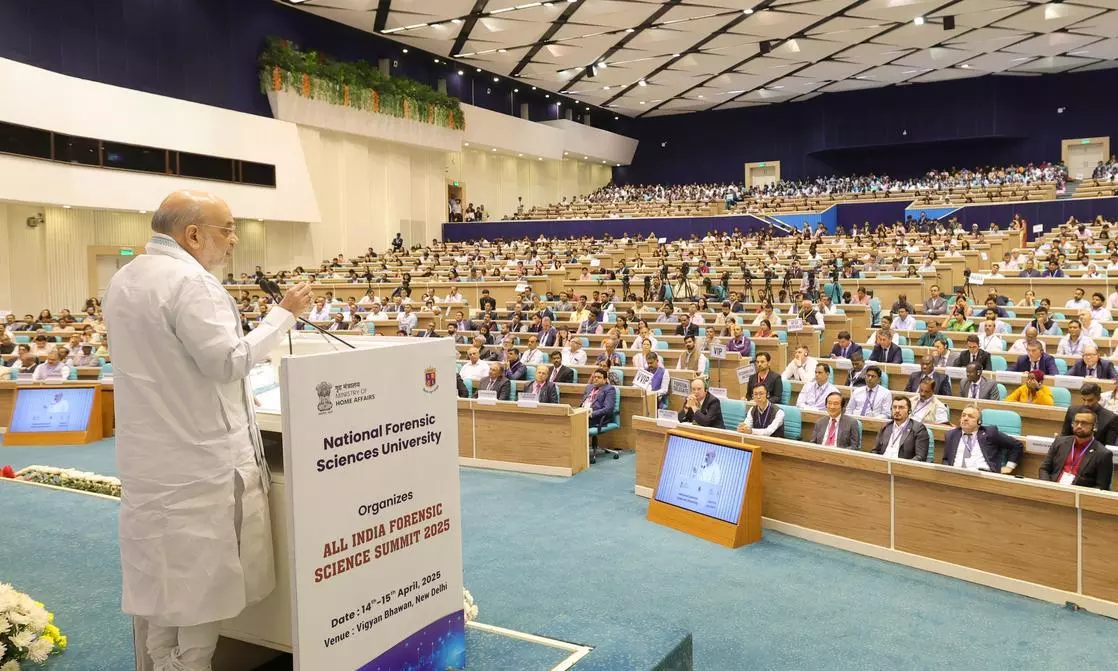Shah: Forensic Science Now Central to India’s Criminal Justice System
Under the new criminal laws enacted in 2024, crime scenes involving offences punishable by seven years or more now require compulsory forensic examination

New Delhi: Union home minister Amit Shah on Monday said the growing complexity and cross‑border nature of crime have made forensic science indispensable to India’s justice system. Addressing the All‑India Forensic Science Summit 2025, Shah asserted that the Modi government has “embedded forensic science in every layer of criminal investigation” to deliver quicker, more accurate verdicts and prevent wrongful convictions.
“Prime Minister Narendra Modi’s vision is to build a people‑centric, scientific criminal‑justice system,” Shah told delegates. “Timely justice and higher conviction rates are impossible without robust forensic support.”
Under the new criminal laws enacted in 2024, crime scenes involving offences punishable by seven years or more now require compulsory forensic examination. The National Forensic Sciences University (NFSU), founded in 2020, has seven campuses nationwide; nine more will open within six months to supply trained experts and foster research. With criminals operating beyond state and national boundaries, Shah said forensic science “increases in importance manifold.” Emphasising that “no innocent should suffer,” he noted that modern forensics strengthens both prosecution and defence by relying on scientific evidence.
Shah also paid tribute to Dr. B.R. Ambedkar on his birth anniversary, saying the Constitution’s architect “ensured our laws remain relevant for generations.”

